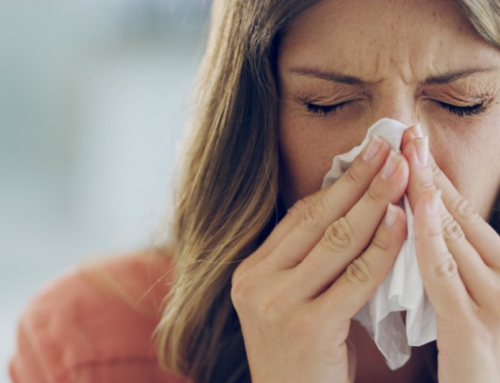CNNTURK – December 16, 2021
Asthma is a chronic lung disease that affects many children. There are some factors that trigger asthma. Stating that one of them is cold weather, Istanbul Allergy Founder, Allergy and Asthma Association President Prof. Dr. Ahmet Akçay explained the precautions that can be taken in cold weather for children with asthma.
What is the connection between cold weather and asthma?
When you have asthma, your airways (bronchial tubes) swell and become inflamed in response to certain triggers. Swollen airways are narrower and cannot take in as much air. Cold weather is a particularly difficult time for asthma sufferers. People often find that their asthma symptoms worsen over the winter. This is because there are many asthma triggers at this time of year.
What can trigger asthma in cold weather?
Not everyone with asthma has to have the same triggers. Different triggers can worsen symptoms in different people. Common conditions that trigger asthma in cold weather include:
Increases cold mucus
Your airways are lined with a protective layer of mucus that helps expel unhealthy particles. In cold weather, your body produces more mucus, but it is thicker and stickier than usual. Extra mucus makes you more likely to catch a cold or other infection.
Cold and Flu
Colds and flu are major winter triggers, and when a very large proportion of people with asthma have a cold or flu, their asthma symptoms worsen.
Chest infections
Chest infections are more common during the winter months and can trigger symptoms in people with asthma. These infections can make asthma symptoms worse as they inflame the airways.
Cold or Humid weather
You may notice that asthma symptoms worsen when the weather is cold. Cold air is dry, which irritates the respiratory tract. It can also cause it to produce more mucus, which can make your asthma feel worse.
Moisture and Mold
In people with mold allergies and asthma, exposure to the allergen can worsen asthma symptoms.
Mites
Mites are the allergen that triggers symptoms in many people with asthma. It is quite difficult to completely avoid dust mites.
What precautions should asthma patients take?
First of all, it is necessary to make sure that asthma is under control. Medications should be taken as directed by your doctor and regular asthma checks should be done. However, those with asthma in cold weather can take the following precautions:
Know your trigger
When you inhale something that triggers your asthma, your airways can become tight and clogged with mucus. You may cough, wheeze, and experience some symptoms. To determine what your triggers are, your doctor can do allergy testing. Once you know your triggers, you can take some measures to reduce exposure.
Limit exposure to pets
Your child may be allergic to your pet, which can worsen asthma symptoms. Try to keep your pet as far away from your child as possible. Also, prevent your pet from entering your child’s bedroom.
Use allergen-proof bedding
House dust mites are common allergens. These mites, which love a humid and warm environment, find the opportunity to reproduce especially in beds and bedding. So if your child has dust mite allergies, use allergen-proof bedding. Wash your child’s bedding at least once a week on high heat.
Keep your home dry
Dust mites and mold spores do not grow very well when the environment is dry and cool. Therefore, pay attention to the humidity level of your home. Here are some ways to keep your home dry during the winter months:
– Run the fan in your bathroom while taking a bath or shower.
-Use the hood in the kitchen while cooking or using the dishwasher.
-Repair leaky pipes and windows.
Take precautions for cold and flu
Colds and flu are both more likely in the winter and can lead to asthma flare-ups. therefore, take precautions to prevent your child from getting them. Have your child wash their hands frequently and stay away from sick people.
Get your child’s flu vaccine
Children with asthma may survive colds and flu more severely. The flu vaccine will protect your child from the flu. For this reason, it will be extremely beneficial for your child to have the flu vaccine.
Do not go outside if the temperature is too low
To prevent asthma attacks, don’t let your child go outside when the temperature gets too low. If you need to go out, use a scarf or bandana to cover your mouth and nose.
Allergy Vaccines May Provide Long-Term Relief
Allergy vaccination, or immunotherapy, can provide long-term relief for people with allergic asthma. We recommend vaccine treatment, especially in patients who experience persistent symptoms who use drugs for a long time. In vaccine treatment, the body becomes insensitive to the allergen and does not give an intense reaction when it encounters the allergen.The success rate of the allergy vaccine administered in the form of injection is very high and continues for several years.






